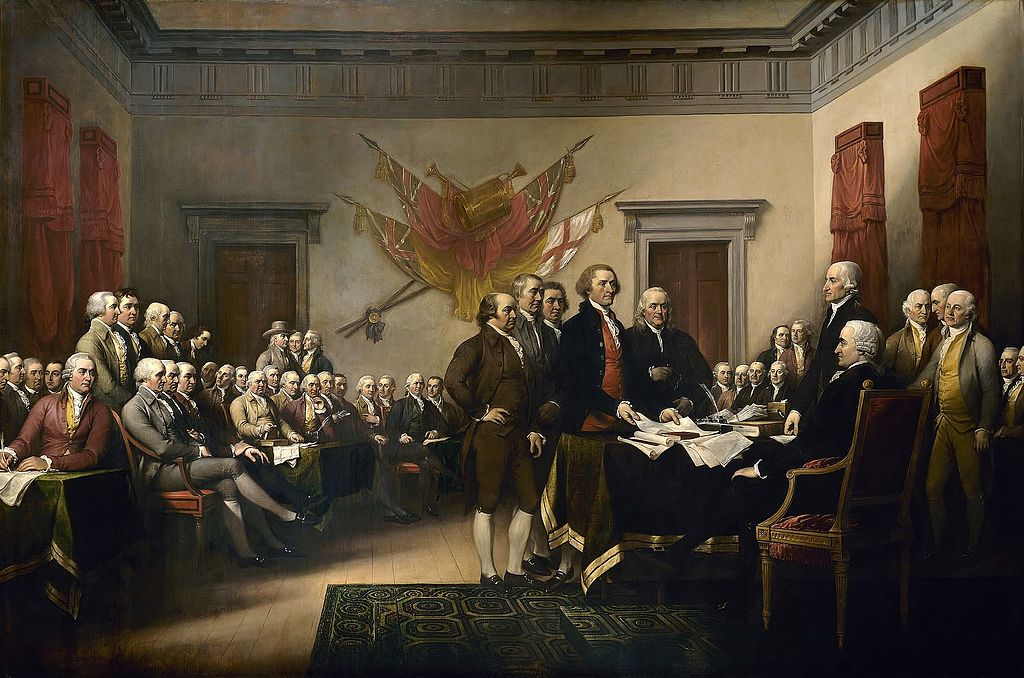Views expressed in opinion columns are the author’s own.
Last week, the United States celebrated Independence Day in remembrance of July 4, 1776, the day that the founding fathers courageously and wholeheartedly declared themselves free from British tyranny. It is customary to see people wearing red, white and blue while attending cookouts and watching fireworks at nightfall to commemorate this monumental event.
NPR contributed to the festivities by tweeting the entirety of the Declaration of Independence, the treasured document on which the holiday is based. While these tweets were well-received by many, some Twitter users took offense and criticized NPR.
“Seriously, this is the dumbest idea I have ever seen on Twitter,” responded Twitter user Darren Mills. “Literally no one is going to read 5000 tweets about this trash.”
“Propaganda is that all you know how? [sic] Try supporting a man who wants to do something about the Injustice in this country #drainingtheswamp” wrote another angered Twitter user.
How could a patriot condemn a journalistic organization for spreading such a powerful pro-American sentiment?
Like many anomalies and mysteries in today’s news, much can be clarified with the inclusion of one word: Trump. Several of the offended Twitter users are Trump supporters who believe that NPR attempted to incite a political cyber revolution of some kind. They didn’t seem to recognize the tweets’ historic origin.
All this virtual chaos is troubling for a few reasons.
For starters, Americans should be able to recognize the Declaration of Independence, or at least part of it. It is the document that grants us our freedom, the very reason we celebrate Independence Day. Moreover, NPR has done an annual reading of the Declaration of Independence for 29 years now, which the tweets served as a complement to. So, readers should not be too surprised to see this coming from NPR.
Scrolling through more than 100 consecutive politically oriented tweets, all in one thread, would be understandably off-putting under different circumstances. However, considering that the posts were made on “America’s birthday,” and that NPR has a long-standing tradition of reading the Declaration of Independence on-air, readers should have taken the hint.
Additionally, the immediate comparison of British tyranny to the Trump administration raises the question: How similar was the rule of King George III to Trump’s presidency? American revolutionaries disliked King George because he made decisions on behalf of the colonists without granting them any sort of representation. Comparably, Trump signed 32 executive orders in his first 100 days as president (a marked increase from Obama’s per-year average of 35). Some may argue that this is Trump’s way of ensuring his agenda is met efficiently. However, doing so stifles the voices of elected representatives and prevents executive power from being checked.
Yale history professor Timothy Snyder, author of “On Tyranny: Twenty Lessons from the Twentieth Century,” agrees that there may be traces of tyranny in the Trump administration.
“Up until now, there is nothing in Mr. Trump’s words or in his actions which would convince us or which would even suggest that he cares even a little bit about democracy or about the rule of law. On the contrary, there are plenty of things he said like referring to judges as “so-called” judges, referring to journalists as enemies of the people,” he said in an interview with Business Insider. “His admiration tends to be limited to foreign tyrants.”
Throughout his political career, Trump has made journalists the enemy. Many Trump fans assumed that NPR was targeting the president on Twitter because it is part of the so-called “fake news media” that prides itself on senselessly attacking the Trump administration. The fact that they jumped to this conclusion before fully understanding what they were reading displays a deeply rooted distrust of the media among Trump supporters. This is concerning for future of journalism, as the public begins to question the objectivity, independence and honesty of the media as a whole.
Sydney Wess is a junior broadcast journalism and art history major. She can be reached at swess@terpmail.umd.edu.



